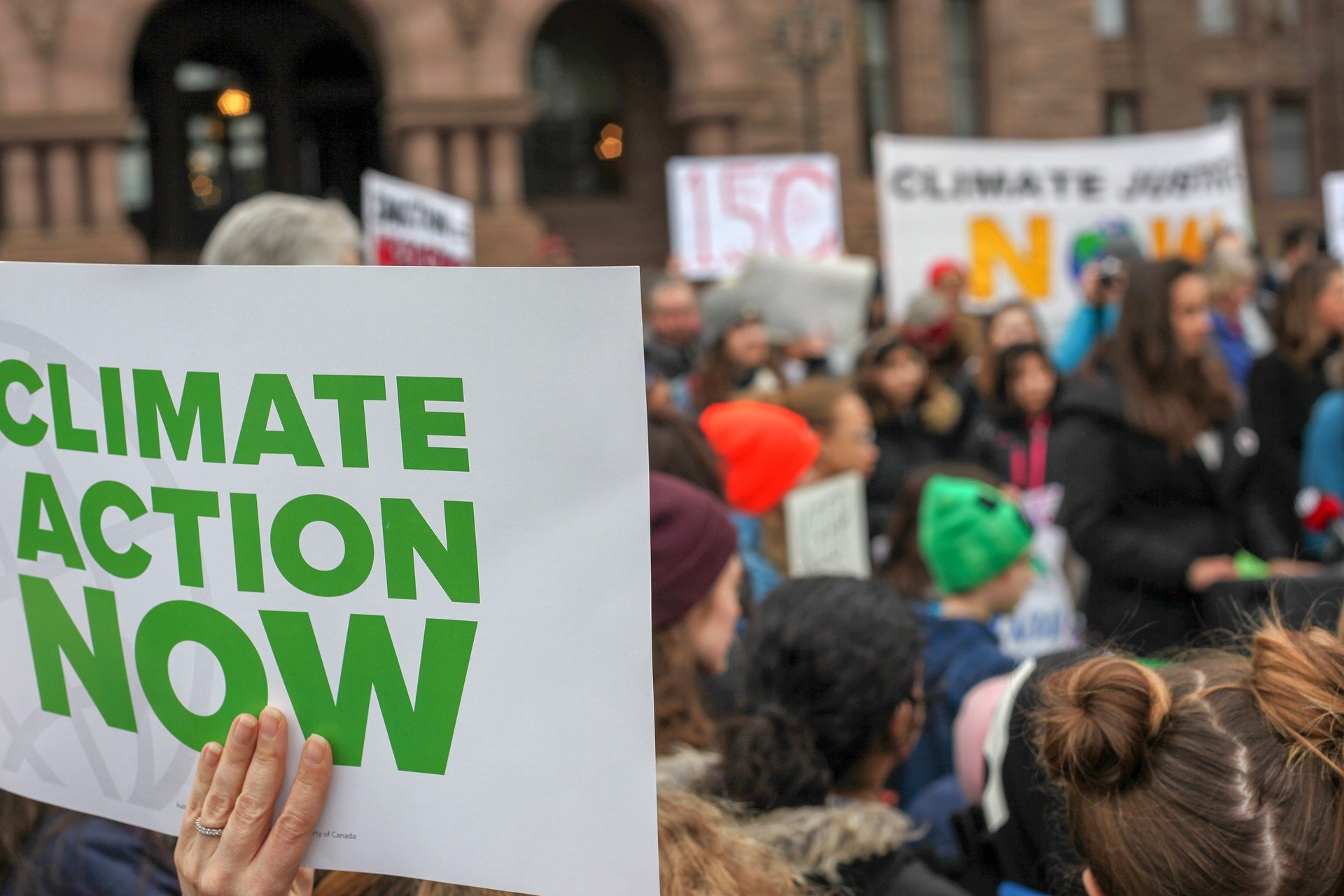The Yale-Harvard football contest the weekend before Thanksgiving each autumn is known as “The Game” by Elis and Cantabridgians. One can always sight the rich and famous among the tens of thousands of alumni in attendance. This year’s season-ender was disrupted by a huge climate change protest that made national news. It began when a group of students poured onto the field and began to shout, “Okay, boomer.” Thousands more joined them in impromptu fashion. The video went viral.
Their message: the generation in charge of the United States has utterly failed in responding to climate change. These miscreants were thus joining with the youth plaintiffs in Juliana v. United States and the 16-year-old Swedish activist Greta Thunberg, plus their millions of supporters, in asserting the need for urgent action by those who have been in charge.
The young adults, who may live to see the year 2100, will also see six feet of sea-level rise and a globe that is as much as 6 degrees Fahrenheit warmer, according to the latest UN “emissions gap” report charting progress on the Paris Agreement. Even its forecast for 30 years hence, when the protesters will be roughly 50 years of age, is dire. The report said the time had come for desperate measures to avoid a climate catastrophe. Waiting is no longer an option.
 The UN is not the only locus of concern. E&E News reports on a study by Oxford Economics: “Under a high emissions scenario, the cost of global warming might reach between 2.5 percent and 7.5 percent of the global gross domestic product by 2050.” These high emissions numbers are implied by humanity’s lack of response to date. The hit on GDP could rise to 30 percent by century’s end. A third of the economy could disappear in a cloud of greenhouse gases during these kids’ otherwise golden years.
The UN is not the only locus of concern. E&E News reports on a study by Oxford Economics: “Under a high emissions scenario, the cost of global warming might reach between 2.5 percent and 7.5 percent of the global gross domestic product by 2050.” These high emissions numbers are implied by humanity’s lack of response to date. The hit on GDP could rise to 30 percent by century’s end. A third of the economy could disappear in a cloud of greenhouse gases during these kids’ otherwise golden years.
The planet “clearly and unequivocally faces a climate emergency,” according to a group of more than ten thousand scientists. Their study, conducted by experts from more than 150 countries and published in the journal Bioscience, declares, “Despite 40 years of global climate negotiations, with few exceptions, we have generally conducted business as usual and have largely failed to address this predicament.” Instead, the world needs to “implement massive energy efficiency and conservation practices” and promptly switch from fossil fuels to renewables.
“For decades, most scientists saw climate change as a distant prospect. We now know that thinking was wrong,” writes Eugene Linden in the New York Times. “This summer, for instance, a heat wave in Europe penetrated the Arctic, pushing temperatures into the 80s across much of the Far North and, according to the Belgian climate scientist Xavier Fettweis, melting some 40 billion tons of Greenland’s ice sheet.”
Elsewhere, scientists found a cavity in a large Antarctic glacier that is two thirds the size of Manhattan and one thousand feet in height, all melted within the last three years — an indicator of how fast the climate has moved from relatively stable to what is becoming a runaway greenhouse effect, with positive feedback loops exacerbating the increase in temperatures. We can already see the killer heat waves, jet stream changes, more massive and energetic storms, and increased wildfires.
In the words of the Washington Post, reporting on the emissions gap study, “Rapid, unprecedented cuts in greenhouse gas emissions offer the only hope of averting an ever-intensifying cascade of consequences” from global warming. The Post notes that “the United States’ energy-related CO2 emissions rose 2.7 percent last year, after a gradual decline. That increase came as the Trump administration continued to roll back Obama-era climate regulations and made clear that the United States, once a leader in pushing for climate action, will withdraw from the Paris accord in 2020.”
According to the scientists surveyed by the Post, “The result could be widespread, catastrophic effects: Coral reefs, already dying in some places, would probably dissolve in increasingly acidic oceans,” and cities along coastlines, “already wrestling with flooding, would be constantly inundated by rising seas. In much of the world, severe heat, already intense, could become unbearable.” The end would undoubtedly be untold human suffering as well as migration away from affected areas to zones of relatively benign temperatures and higher elevations, straining the international economy further and creating instability in some receiving nations.
We boomers have inherited the mantle of responsibility for the response to climate change, and yet the current president, a boomer himself, has undone our attempts to curb emissions from the utility sector and to up the fuel economy of the automobile fleet and even to increase the efficiency of lightbulbs. For too many Americans, climate change is nothing more than one more example of “fake news.” Sadly, however, it will be Millennials and Gen-X and their progeny who will see the planet become barely inhabitable — the generation in charge for the last quarter century will check out before the worst effects become real.
This blog originally appeared in The Environmental Forum and is reprinted with permission.
